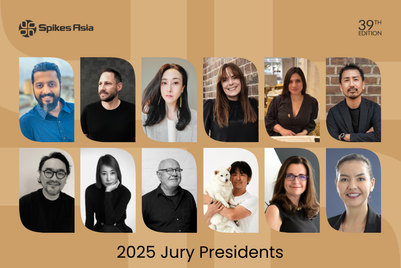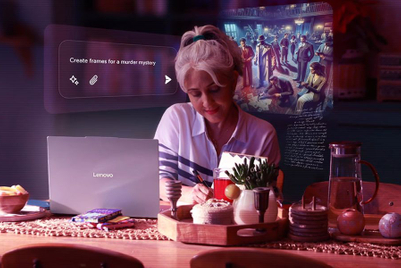
David Mayo, CEO, Bates CHI & Partners conversed with five youngsters from around Asia in the session titled 'How our industry needs to change - by the bosses of tomorrow' on day one of Spikes Asia 2015. The session featured Kevin from Philippines, Beau from Singapore, Shafira from Indonesia, Duong from Vietnam and Jack from China.
The session began with a montage of films that showed the evolution of advertising. The montage ended with J. Walter Thompson's 'Make Every Yard Count' for Nike.
Mayo, who was in the hot seat, began, "When I took over (Bates CHI & Partners), two years ago, I thought agencies have been left behind in this creative world. And since then it's been a baptism of fire. We need to change. I've brought in new and untrained talent and..."
Mayo was interrupted by Bates CHI's Shafira. She said, "I don't think we need to be mentored."
Beau from the Singapore office of the agency continued, "I didn't join an ad agency to be mentored. I wanted to create things and I speak for the punks generation. Creative people in this friggin' generation have diverse interests and are interested in technology. In Singapore, advertising is the third most wanted job this year. So, this leaves adland in a great position. We know that young talent is important but we're not making use of it. What's happening is young talent is getting into old positions. It's like getting young people to replace old people in a band to play old songs. We need to reshape this."
He had three suggestions for this 'reshape'. He explained, "We need to look at reverse mentoring. Yes, we can learn from seniors, but we can also teach them stuff, like Snapchat. Then, we need to encourage passion projects and reward them. Young talent should also be part of hiring procedures. If leaders are going to make us work with people, we should get to pick who we work with."
Mayo responded that he agreed with Beau about reverse mentoring, but it's also about value.
Shafira interrupted Mayo again. She said, "But values are changing. The word value has been bugging my mind. We are getting spoiled by cheap, alternative products in Indonesia. Even after that we bargain. That's worrying and it's also started happening in our own industry. So, where's the value. If you're paying peanuts, you'll get monkeys. We need to be smart enough and work with clients."
Duong added, "The answer for everything is available on the internet. The best brief we can get is 'Make us trend'. People only talk about work which is good, and thus when we're given such a brief, it's good. Creativity is changing and it's about being ahead of every moment."
Mayo then said, "Creativity needs to be like the CIA - more felt than seen."
He then asked the youth about how does collaboration work in this era.
Philippines' representative, Kevin, said, "Collaboration is inevitable. We experience it everywhere. But do we really know what it means and what is its purpose? The big agencies have a traditional mindset. The agencies feel they're more important that the people working for them. We need collaboration. We need to know capabilities to achieve a goal. We the young punks are doing a job with what we do. We want to provide significant and emotional ads for the client. This can happen only with collaboration."
The next topic discussed was about simplicity and complexity. Jack from China said, "There are so many agencies in the world. 33 per cent clients manage more than 50 agencies, 22 per cent manage over 100 agencies (according to Forbes). But as consumers we have more options. People keep saying 'simplify'. But if you would put people in a simple world, they'll be fed up. In China there are two messenger options - QQ and WeChat. They both look alike, they have the same functionality and the same developers. But, the younger generation is on QQ because they feel WeChat is for the older people. So, we like to be different and for that there needs to be choices."
Mayo surmised, "We need to future proof what we need as agencies. From an agency perspective, we should look to over promote young folk. We'll learn from them."


.jpg&h=334&w=500&q=100&v=20250320&c=1)
.jpg&h=334&w=500&q=100&v=20250320&c=1)


.jpg&h=334&w=500&q=100&v=20250320&c=1)


.jpg&h=334&w=500&q=100&v=20250320&c=1)

.jpg&h=334&w=500&q=100&v=20250320&c=1)

.jpg&h=268&w=401&q=100&v=20250320&c=1)

.jpg&h=268&w=401&q=100&v=20250320&c=1)
.jpg&h=268&w=401&q=100&v=20250320&c=1)

.jpg&h=268&w=401&q=100&v=20250320&c=1)

